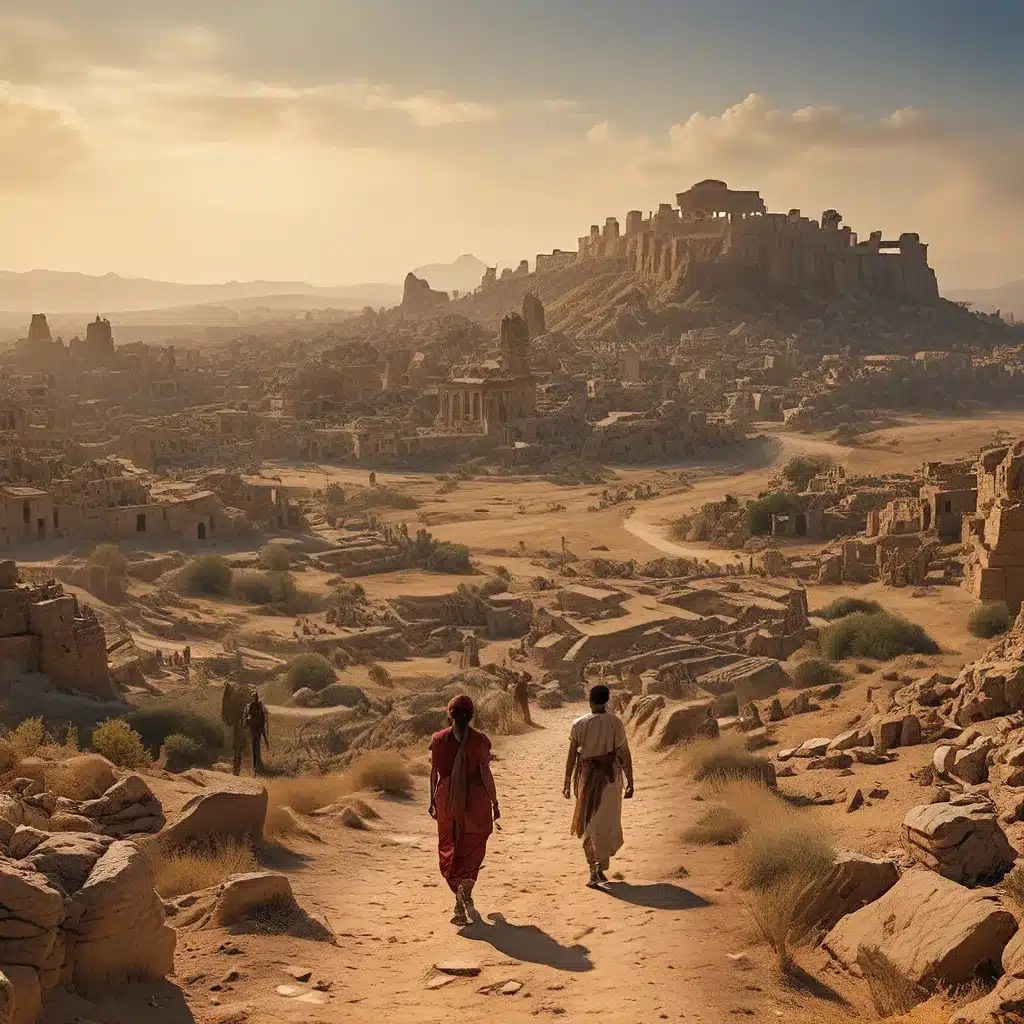
Uncovering the Mysteries of the Past: A Journey through Ancient Civilizations
In the vast expanse of human history, the stories of bygone eras have captivated our collective imagination. From the grandeur of the Roman Empire to the enigmatic rise and fall of the Mayan civilization, the narratives of antiquity have undergone a remarkable transformation as new archaeological discoveries and interdisciplinary research continue to shed light on the past.
Unveiling the Secrets of Vanished Civilizations
The study of ancient cultures has long been a subject of fascination, with each new archaeological find offering a tantalizing glimpse into the lives and experiences of those who came before us. As historians and archaeologists delve deeper into the archives of time, they uncover a tapestry of stories that challenge the traditional understanding of human progress and the evolution of societies.
One such example is the recent excavations at the ancient city of Göbekli Tepe in southeastern Turkey. Dated to over 11,000 years old, this remarkable site predates the development of agriculture and the establishment of permanent settlements, shattering the long-held belief that the emergence of complex societies was driven solely by the advent of farming. The discovery of these monumental stone structures, adorned with intricate carvings and depictions of animals, suggests that early human societies may have been far more sophisticated and organized than previously thought.
Reframing the Narratives of Antiquity
As new archaeological discoveries continue to challenge and reshape our understanding of the past, it becomes increasingly clear that the stories of antiquity are not static, but rather ever-evolving. The narratives we construct about ancient civilizations are often a reflection of our own biases, cultural perspectives, and the limitations of the available evidence.
For instance, the traditional portrayal of the Roman Empire as a beacon of progress and civilization has been called into question in recent years. While the Romans undoubtedly made significant advancements in architecture, engineering, and administration, their empire was also built on the backs of enslaved populations and the exploitation of conquered territories. As historians delve deeper into the lived experiences of marginalized groups within the Roman world, a more nuanced and complex narrative emerges, one that forces us to reckon with the darker aspects of this ancient superpower.
Embracing the Complexity of the Past
As we navigate the ever-changing landscape of ancient history, it becomes essential to embrace the complexity and uncertainty inherent in the study of the past. Rather than clinging to rigid, monolithic narratives, we must be willing to engage with multiple perspectives and narratives that challenge our preconceptions and encourage a deeper understanding of the human experience.
One such area of exploration is the role of religion and spirituality in shaping the development of ancient civilizations. While traditional accounts often depict religious belief as a hindrance to progress, recent research suggests that religious worldviews and practices may have played a more nuanced and even positive role in the development of complex societies. For example, the emergence of organized religion may have facilitated the coordination of large-scale projects and the unification of diverse populations under shared belief systems.
Embracing the Possibilities of the Past
As we delve into the rich tapestry of ancient civilizations, it becomes clear that the stories of the past are not set in stone. Rather, they are dynamic and ever-evolving, shaped by the continued efforts of scholars, archaeologists, and historians to uncover new evidence and reframe our understanding of the human experience.
By embracing the complexity and uncertainty inherent in the study of antiquity, we open ourselves up to a world of endless possibilities and new narratives. The stories of vanished worlds may hold the key to unlocking a deeper understanding of our own present and future, guiding us towards a more nuanced and inclusive vision of human progress.
Through this journey of rediscovery and reinterpretation, we can gain a greater appreciation for the resilience, ingenuity, and diversity that have characterized the human experience throughout the ages. By shedding light on the forgotten narratives and uncovering the hidden perspectives of the past, we can inspire new generations to engage with the lessons of history and shape a more informed and compassionate understanding of our shared human heritage.
The Lost Kingdoms invites you to embark on this captivating exploration of antiquity’s evolving narratives. Join us as we uncover the mysteries of the past and rewrite the stories of vanished worlds, illuminating the rich tapestry of human civilization and its enduring impact on our world today.


